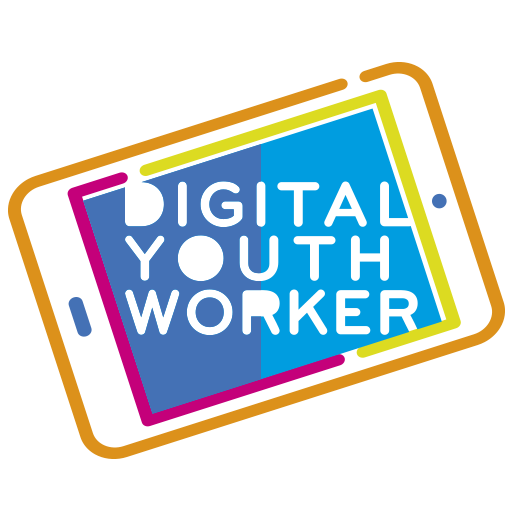AIDA: “Raising awareness on digital minimalism AgaInst Digital wAste for improved digital sustainability behaviours among youth”
BACKGROUND OF THE PROJECT:
It was found that we as a modern technology society, generate more data than ever — roughly 2.5 quintillion bytes every day. This unimaginable number is only going to increase in the next years due to the global intentions of investing into digitalization to support the green transition – as it already started in the pandemic era.
Almost everything we do online increases our carbon footprint. This is described as used server space and energy. A part of that digital footprint can be described as digital waste – meaning data that we have created online, but no longer use. Digital waste has grown exponentially over the last decade as storage of data — such as e-mails, pictures, audio and video files, etc. — has shifted to the online sphere. Thus, the “noise” of the digital world can slow down our productivity and sustainable lifestyle choices (due to consumerism and marketing online, things on constant demand). In case of younger generations, this is mainly done via social media use and the cyber influencers that are selling the unsustainable lifestyle picture, which is visually very attractive to them.
We found there is a lack of awareness-raising content and prevention guidelines for young people, who use such digital channels, tools and devices the most – using attractive, interactive, co-creative approaches. Within the project AIDA, we wish to present the user-friendly and easily applicable idea of digital minimalism to young generations as digital waste (poor data stewardship) also causes unsustainable environmental consequences. And since young generations are passionate about saving the planet, they might not think too much yet on the problems of the long-term effects of storing vast amounts of information in a digital format.
In this context, the project AIDA: “Raising awareness on digital minimalism AgaInst Digital wAste for improved digital sustainability behaviours among youth” which is an Erasmus+ Small Scale Cooperation Partnership and involves young generations that are already keen on using various digital tools and present them with the need and applicability of the sustainability aspect within. Thus, this can indirectly target the unnecessary digital hoarding and positively impacts the cybersecurity of the users as well as their energy consumption patterns. Moreover, sustainable use of digital tools and digital housekeeping can also lead to better mental health and general well-being.
PROJECT OBJECTIVES & RESULTS
Throughout 16 months of project implementation, the Partnership set the following Project Results (PR) and outcomes that were achieved:
- A multilevel Project website and social media page(s), available in English, Spanish and Slovenian.
- Field research & awareness campaign, that represents a baseline for the project AIDA and serves as preliminary feedback on the actual status of knowledge among youth, that are supposed to be quite digitally literate.
- E-booklet on AIDA recommendations, which covers the planning of the digital decluttering process, digital archiving approaches and time management, digital detox, applying digital minimalism concept against digital hoarding, screen scheduling tips, better explanation of digital footprint
- A youth training in Maribor, Slovenia for 12 young participants with the objective of promoting the acquisition of new knowledge and competencies. It also served as an evaluation to improve the e-content previously developed.
- Final AIDA online workshop: closing external event for 30 attendees from various stakeholder databases, interested in receiving in-depth presentation and application model for further use and implementation process across EU.
TARGET GROUPS
The development of the project AIDA, was planned and it is organized in a way that the participation of the following target groups has been consistent in any phase of the project:
- YOUNG PEOPLE (18-28 years): who use digital tools and devices on a daily regular basis, whether for work, educational or personal purposes and are interested in acquiring sustainable techniques for digital decluttering, digital minimalism in optimizing their presence in the digital world.
- STAFF (SCHOOL CONSULTANTS, YOUTH WORKERS, WORK MANAGERS, …) in different institutions working with young people (e.g., youth organizations, NGOs) who are interested in increasing their knowledge on sustainable use of digital devices and crucial areas of individual’s digital footprint.
- Organizations of the project consortium and their personnel in receiving new knowledge as we are all organizations working in the digital world, with lots of data, need of proper archiving, optimizing our digitalized management and our digital footprint of our activities, etc.
PARTNERSHIP
P1) (Coordinator) SMARTUP N.B. SYSTEMATIC MANAGEMENT S.L. Spain – SPAIN www.smartupsystem.com
P2) MIITR – Mednarodni institut za implementacijo trajnostnega razvoja, Maribor – SLOVENIA http://miitr.eu/
P3) MPŠ – MEDNARODNA PODIPLOMSKA SOLA JOZEFA STEFANA – SLOVENIA www.mps.si
So, stay tuned for more news and do not forget to follow Project News and see the available Results and e-tools available in English, Spanish and Slovenian Language on the website: www.aidaeuproject.com
and official social media pages!
@AIDAeuProject
THANK YOU!
This project has been funded with the support of the European Commission. This publication reflects the views only of the author and the Commission cannot be held responsible for any use which may be made of the information contained therein.
Project No: 2022-3-ES02-KA210-YOU-000093411








